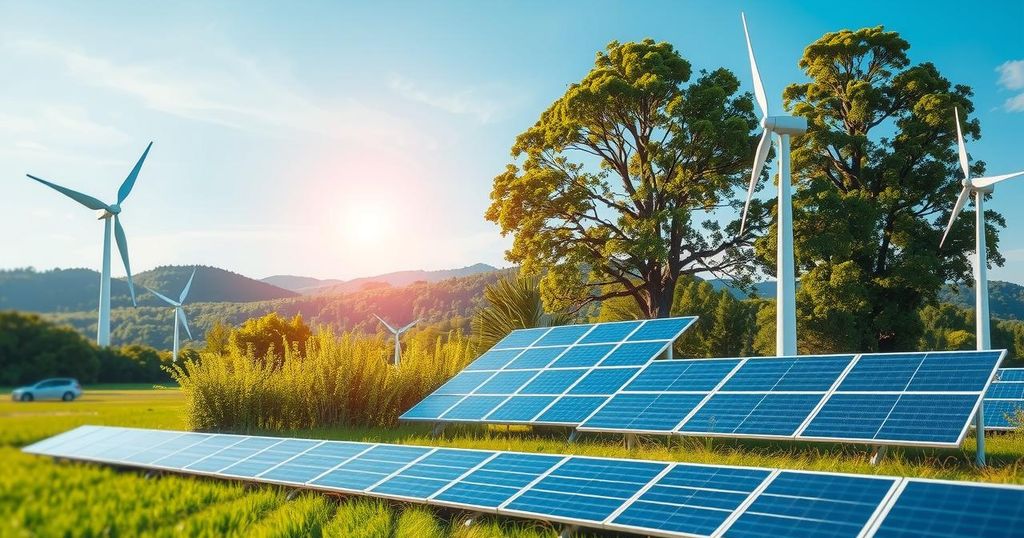Chris Wright, nominated to lead the Department of Energy, received bipartisan support at his Senate confirmation hearing despite climate protests. He emphasized the importance of energy for the economy and defense, engaged civilly with senators, and addressed concerns about climate change and various energy sources. The confirmation process underscored the delicate balance between fostering collaboration and confronting aggressive climate policies under the Biden administration.
At a Senate committee confirmation hearing, Chris Wright, nominated to lead the Department of Energy, received a positive reception from senators across party lines, despite protests from climate activists. Wright, the CEO of Liberty Energy, emphasized the essential role of energy in sustaining the U.S. economy and defense, promoting energy as a driver for health, wealth, and opportunity.
Throughout the hearing, climate activists interrupted, blaming energy executives like Wright for environmental issues such as wildfires, but they were escorted out. Most Democratic senators showed warmth towards Wright, with Senator John Hickenlooper recalling a friendly debate they had over energy issues years ago, signaling mutual respect despite differing views.
Bipartisan relationships likely contributed to the congenial nature of the hearing, according to Senator Bill Cassidy. He noted that Wright’s personal rapport with Democratic senators helped facilitate discussion, contrasting it with more contentious recent hearings. Senator Steve Daines praised Wright as a pragmatic nominee capable of fostering bipartisan solutions at the Energy Committee.
However, some senators, including Senator Mazie Hirono, questioned Wright more aggressively, particularly about a meeting with oil executives and then-candidate Donald Trump. Wright clarified the nature of the meeting, denying Hirono’s claims about it being linked to oil-drilling leases. Meanwhile, Senator Catherine Cortez Masto engaged Wright on viable U.S. energy sources, prompting a conversation that included natural gas, geothermal energy, and nuclear power, although she noted his omission of solar power.
Throughout the session, a spirit of compromise prevailed. Hickenlooper inquired about climate change strategies, to which Wright acknowledged the reality of climate change and stressed the necessity of evolving the energy system to address it effectively. He emphasized a career-long commitment to advancing diverse energy technologies for a cleaner future.
Democratic members seemed aware that President Biden’s aggressive climate policies had significant political ramifications, highlighting the strategic importance of Wright’s potential confirmation in a politically charged atmosphere. His future role would include navigating the repercussions of Biden’s energy policies, including recent bans on offshore drilling. Daines expressed confidence that these bans would be reversed under President Trump, facilitating Wright’s agenda.
Chris Wright’s nomination as Energy Secretary comes amid a contentious political climate reflecting deep divides over energy sources and climate policy in the United States. His background as CEO of a natural gas company positions him uniquely as a nominee, promoting a vision that integrates diverse energy sources. The dynamics during his confirmation hearing illustrated the challenges and opportunities in achieving bipartisan cooperation at a time when energy policies are at the forefront of national debate.
The confirmation hearing for Chris Wright revealed a blend of bipartisan support and intense scrutiny over energy policy. While some senators posed challenging questions, many recognized Wright’s potential to bridge gaps in energy discussions within a politically volatile landscape. His emphasis on technological innovations and an inclusive approach to energy sources suggests a trajectory that could align with both climate aspirations and energy demands as he navigates his responsibilities if confirmed.
Original Source: www.dailysignal.com






